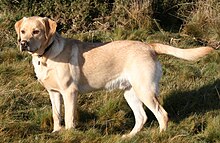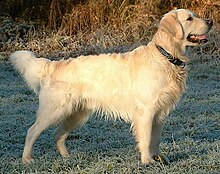
The Newfoundland, often simply referred to as “Newf” or “Newfie,” is a gentle giant whose origins are intertwined with the rugged coastlines of Newfoundland, Canada. Recognized for its immense size, strength, and webbed feet, this breed was indispensable to fishermen, excelling in water rescues and tasks that required raw power. Cloaked in a dense, water-resistant coat, typically in black, brown, gray, or Landseer (white with black markings), the Newfoundland possesses a benevolent disposition that contrasts its formidable appearance. Beyond their maritime prowess, these dogs are celebrated as family protectors and gentle companions, with a particularly soft spot for children.
The Newfoundland is a member of the AKC Working Group.
Breed Characteristics
| Dog Breed | Newfoundland |
| Breed Popularity (AKC) | 42 |
| Country of Origin | Canada |
| Personality | Loyal, intelligent, gentle, good-natured |
| Life Expectancy | 9-10 yrs |
| Height | 26-28 in |
| Weight | 100-150 lbs |
| Color | Black, Brown, Grey |
| Coat | Thick and straight |
| Shedding | Seasonal |
| Grooming | Weekly Brushing |
| Health Problems | Hip dysplasia, heart conditions, cancer |
| Trainability | Easy Training |
| Exercise Needs | Regular Exercise |
Newfoundland History
Originating from Newfoundland, Canada, this breed was initially used by fishermen to help pull nets and rescue shipwrecked sailors due to their excellent swimming abilities. Their lineage likely includes native Canadian dogs crossbred with Portuguese, Spanish, and Basque working dogs brought by explorers in the 15th and 16th centuries. Their gentle nature and strength make them excellent working and companion dogs.
Temperament
Newfoundlands, often called ‘gentle giants’, are known for their sweet and calm demeanor. Their behavior is friendly, making them excellent family dogs, especially around children. They are intelligent, making training relatively easy. They have a moderate energy level, often enjoying water-related activities due to their natural swimming ability. Socialization helps ensure they’re well-behaved around other animals. Their barking tendencies are low, and their affectionate nature makes them sought-after companions.
Remember, while breed traits provide a general idea, individual dogs can have personalities that differ from the breed standard. Always spend time getting to know the dog and ensure their needs and temperament align with your lifestyle.
Grooming Requirements
Newfoundlands possess a thick, water-resistant double coat that demands regular brushing to manage shedding and prevent matting. Given their size, bathing can be a task but should be done as needed with a gentle dog shampoo. Regular nail trimming, ear cleaning, and a check for any signs of drooling around the mouth area are crucial for grooming.
Newfoundland Health
A gentle giant, the Newfoundland has a typical lifespan of 9-10 years. They require consistent vaccination and flea prevention to stay healthy. Given their size, joint health issues like hip dysplasia can arise. A nutritionally balanced diet, combined with premium dog food and treats, can support joint health. Regular deworming and considering neutering or spaying are also essential aspects of their health regimen.
Exercise Needs
Newfoundlands, despite their large size, have a moderate energy level. Regular short walks paired with play sessions, especially water-based activities, are essential. They might enjoy visits to the dog park but, due to their size, interactions should be monitored. Bonding through calm outdoor activities and water play is beneficial for this breed.
Training
Newfoundlands, affectionately termed ‘gentle giants’, greatly benefit from early obedience training to manage their size. Through structured commands, potty training becomes manageable, and crate training offers them a soothing den. Behavior problems are rare, but early detection and intervention are crucial. Regular socialization guarantees they maintain their gentle and affable nature.
Newfoundland Pictures
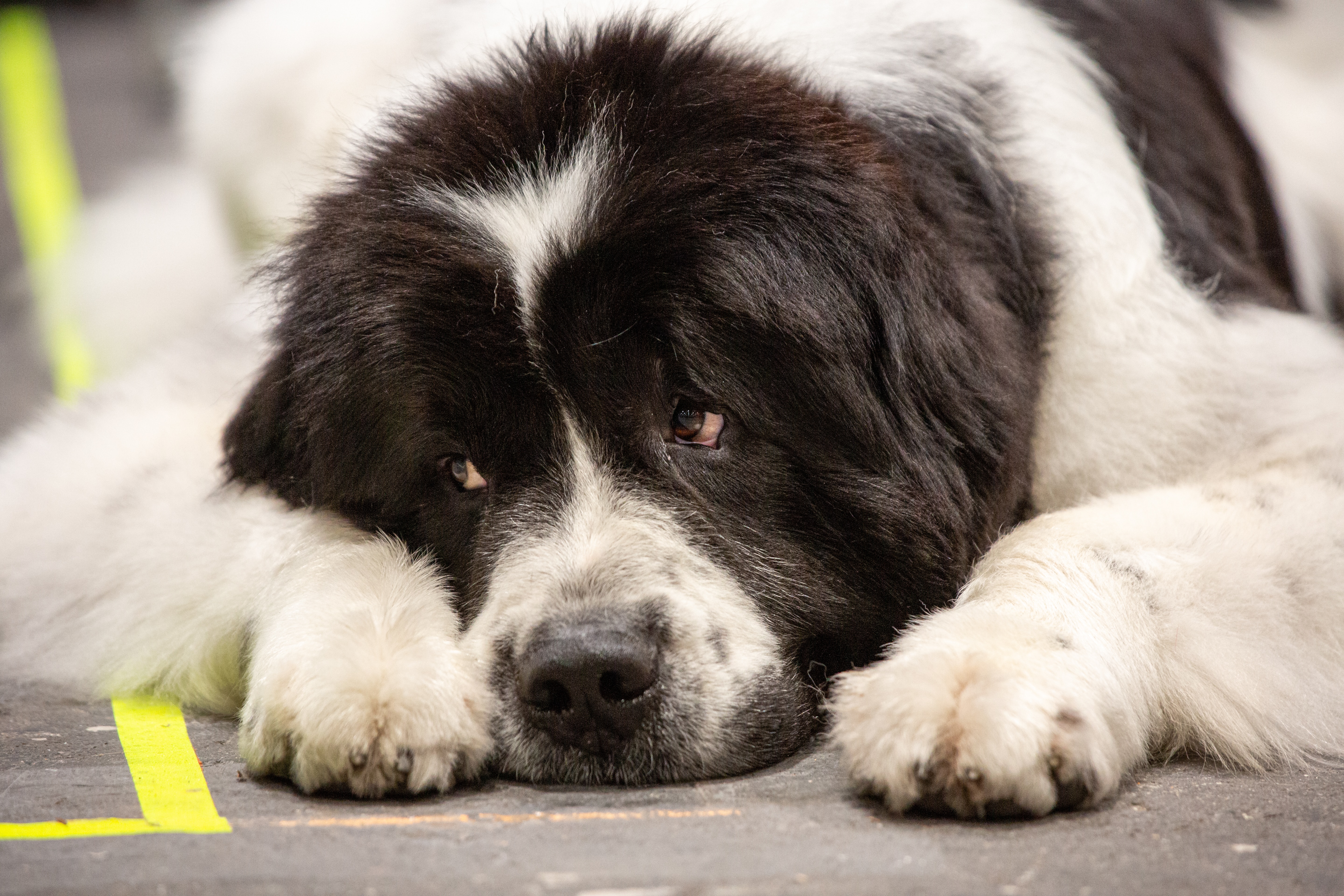
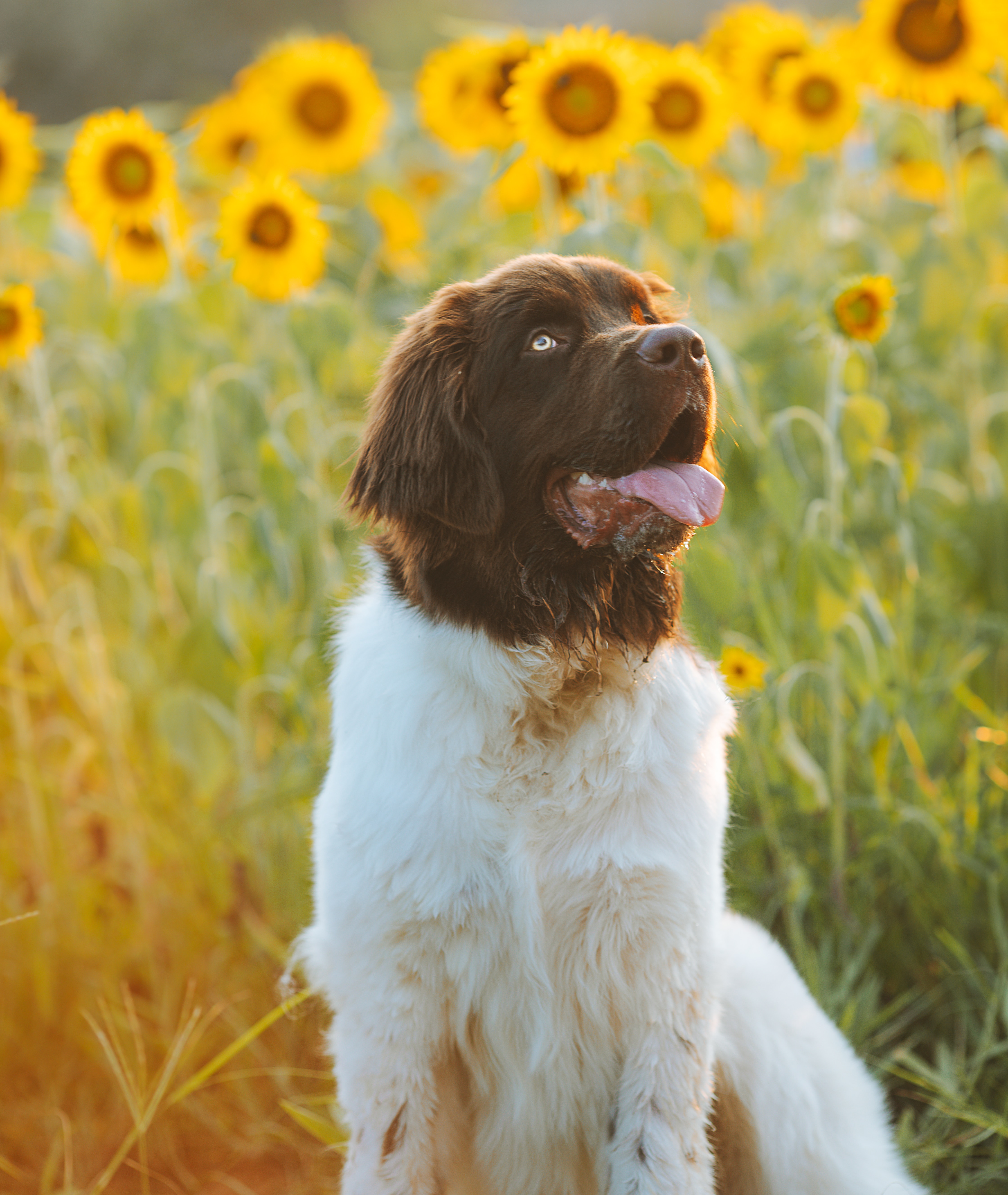
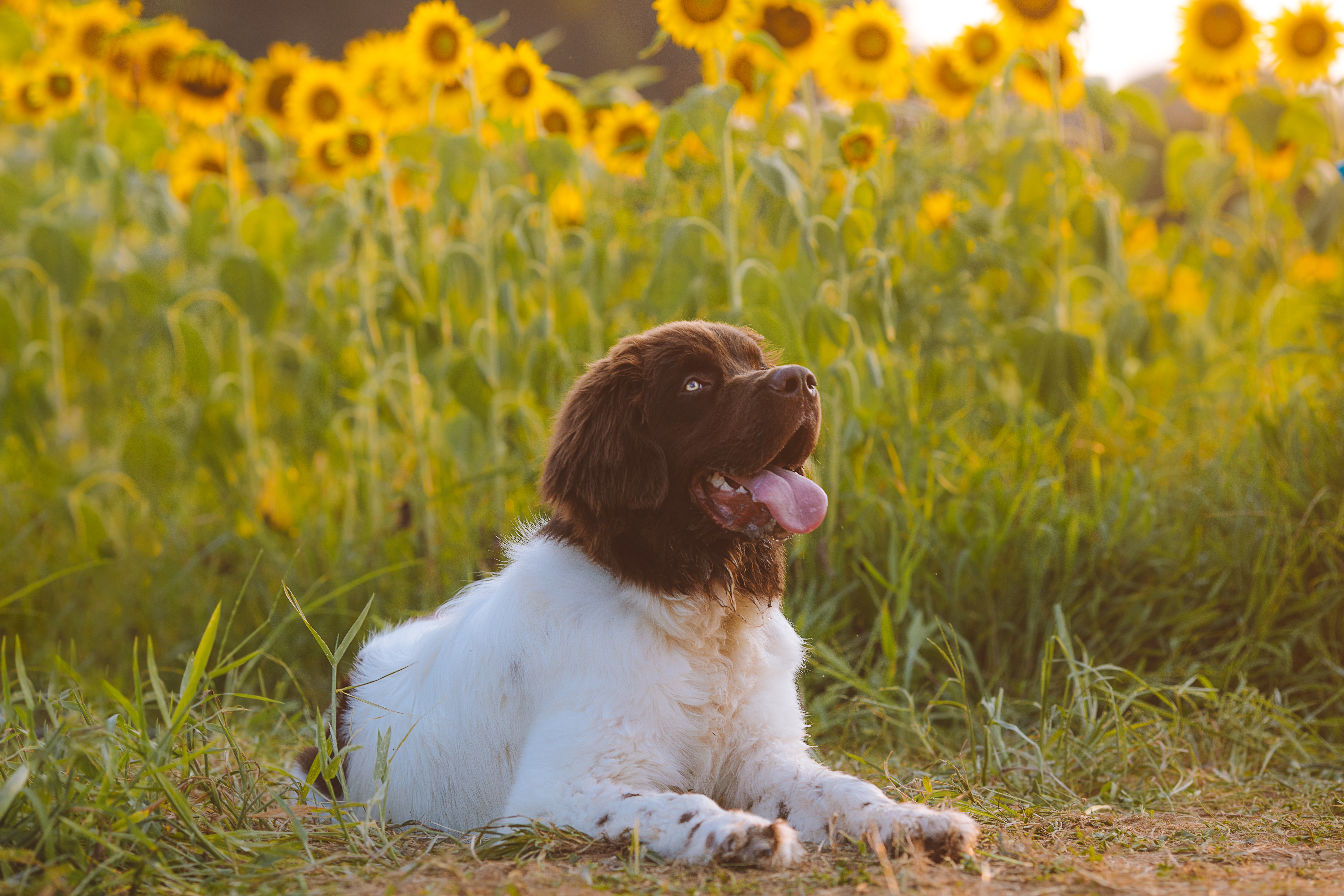
Related Dog Breeds
More Dog Resources
Are you thinking about getting a puppy? Make sure to check out our list of important questions to ask before you adopt a puppy.
We also have many resources to help, from naming your puppy to socialization resources and training tips.
Take me back to the Ultimate Guide to Dog Breeds


